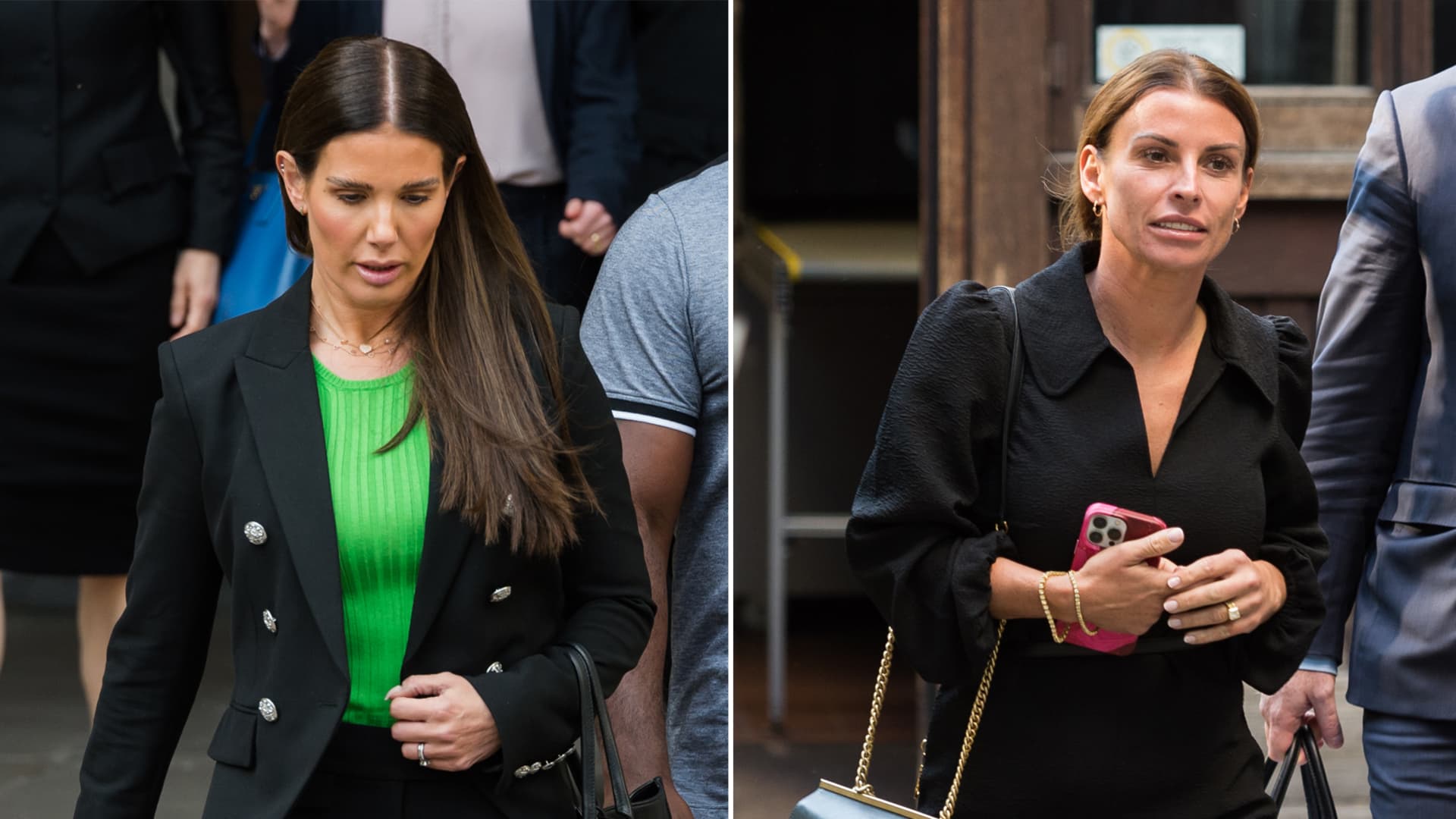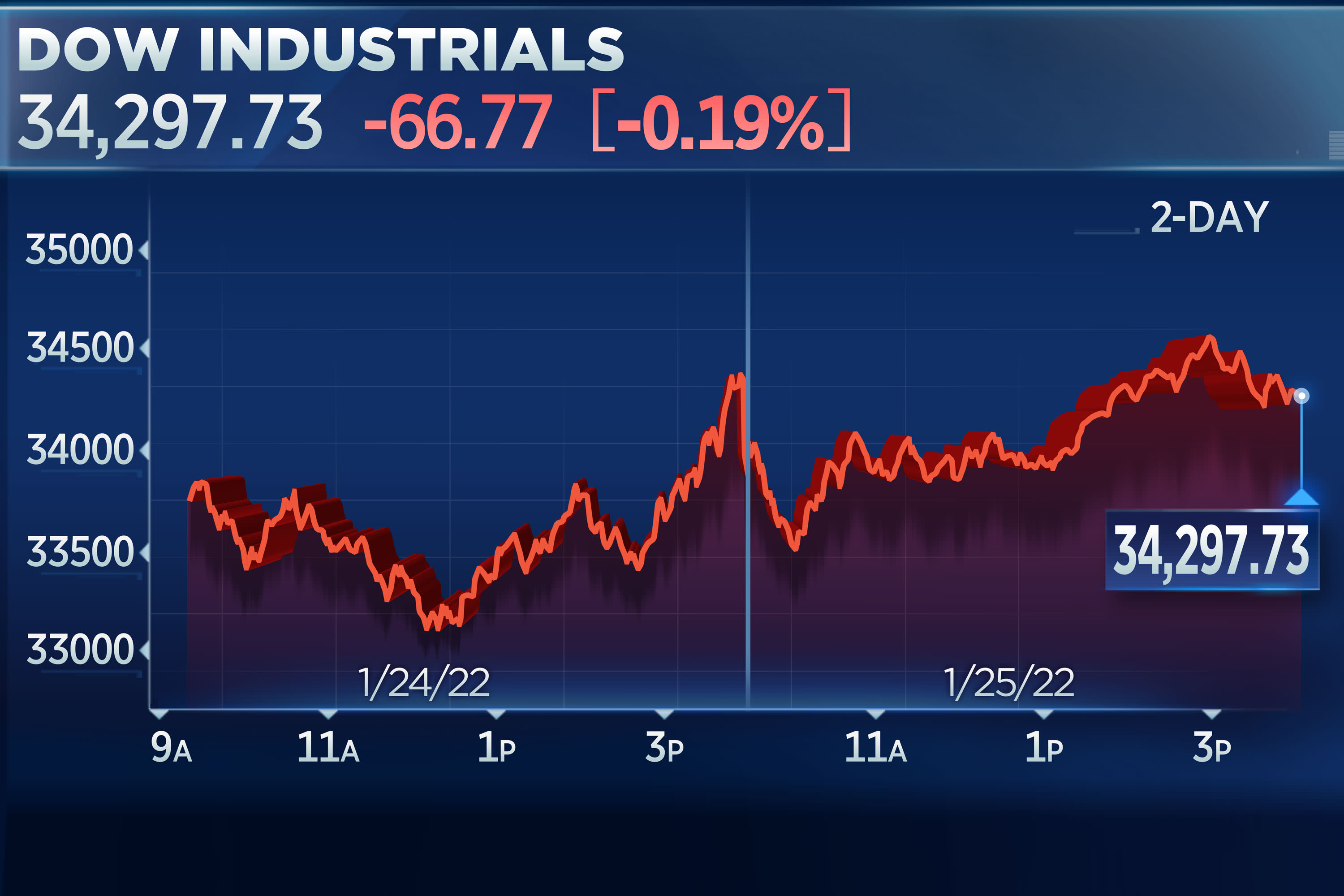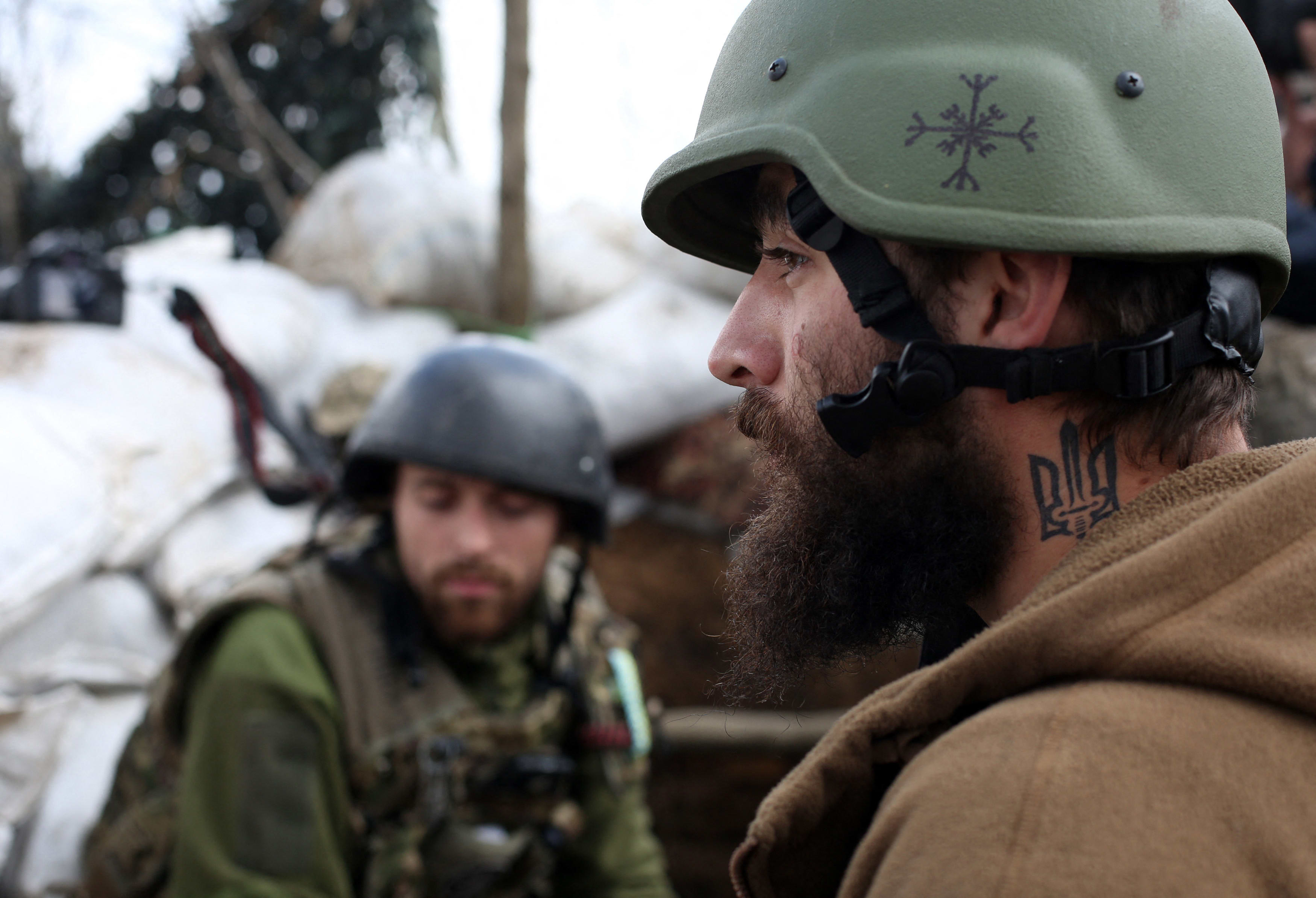Britain's star-studded 'Wagatha Christie' libel trial is over: Here's what went down
Rooney alleged that stories from her private Instagram account were leaked by Vardy to journalists at British tabloid newspaper The Sun.

Rebekah Vardy, wife of Leicester City striker Jamie Vardy (L), leaves the Royal Courts of Justice following the final day of the high-profile trial dubbed by the media as "Wagatha Christie" case where Rebekah Vardy is suing Coleen Rooney (R) for libel after being publicly accused of leaking private stories to the press on May 19, 2022 in London, England.
Wiktor Szymanowicz | Future Publishing | Getty Images
LONDON — The so-called "Wagatha Christie" trial that has gripped the British public reached a verdict on Friday, with Rebekah Vardy losing her libel case against fellow soccer star wife Coleen Rooney.
The U.K. High Court ruled against Vardy and in favor Rooney after a years' long dispute between the two "wags" — soccer players' wives and girlfriends — which featured all the twists and turns of one of Agatha Christie's finest mystery novels.
Judge Justice Steyn delivered her written verdict Friday following a vitriolic and salacious two-week trial in May.
It comes two years after Vardy sued Rooney for defamation after a dispute over a string of Instagram posts.
Rooney alleged that stories from her private Instagram account were leaked by Vardy to journalists at British tabloid newspaper The Sun.
Vardy vehemently denied the claims, arguing that the accusations had caused her "public abuse on a massive scale," and suing Rooney in an attempt to clear her name.
However, in her ruling Friday, Steyn said it was "likely" that Vardy's then-agent Caroline Watt "undertook the direct act" of passing information to The Sun.
"The evidence ... clearly shows, in my view, that Mrs Vardy knew of and condoned this behavior, actively engaging in it by directing Ms Watt to the private Instagram account, sending her screenshots of Mrs Rooney's posts, drawing attention to items of potential interest to the press, and answering additional queries raised by the press via Ms Watt," she said.
How did we get here?
Rooney and Vardy entered the spotlight in the 2000s and 2010s as the so-called wags — a now lesser-used term owing to its sexist connotations — of former England soccer captain Wayne Rooney and Leicester City player Jamie Vardy, respectively.
But the pair, once friends, rose to personal infamy after a public fallout.
Rooney, suspecting someone of leaking stories from her private Instagram account to the press, embarked on a "sting" operation in 2019.
She posted a slew of fake stories — including about traveling to Mexico for a "gender selection" procedure and the basement of her home flooding — gradually restricting her followers to see if the stories would still emerge in the press.
Eventually, when just one follower remained and the stories continued to leak, Rooney took to social media to post the conclusions of her findings: "It's.......... Rebekah Vardy's account."
Vardy, who denied the accusations, then brought the libel case against Rooney, saying her reputation had been damaged.
Rooney maintained that her actions were justified in the interests of truth and public interest.
What happened in court?
The case went to a seven-day trial in May, in which Rooney, 36, and Vardy, 40, both took to the stand to share their accounts.
In an emotionally-charged hearing, Rooney's defense brought evidence of Vardy's apparent disregard for other people's privacy, including her sale of a "kiss-and-tell" story following a one-night stand with fellow celebrity Peter Andre.
Vardy eventually admitted that she had previously tried to leak one story about footballer Danny Drinkwater, messaging her agent, Watt, to say: "I want paying for this."
She also appeared to accept that Watt had leaked information from Rooney's private Instagram account to a newspaper, but denied that it was "new" information.
Watt was deemed unfit to testify during the court case. The Sun's journalists did not give evidence either.
An expensive saga
In her ruling Friday, Judge Steyn said that Vardy suffered "a degree of self-deception" to the extent of her involvement in the leaks to The Sun, adding that "there were many occasions" when Vardy's evidence "was manifestly inconsistent."
She also noted that while Vardy may have felt "genuinely offended by the accusation made against her by Mrs Rooney in the reveal post" the accusations of libel — a type of defamation in written form — were unsubstantiated.
Rooney said Friday that she felt vindicated by the ruling.
"Naturally, I am pleased that the judge has found in my favor with her judgement today," she said, according to a statement issued to the PA news agency.
However, she noted that the trial was one of excessive expense at a time when many people across the country are facing a worsening cost-of-living crisis.
"It was not a case I ever sought or wanted," she said. "I never believed it should have gone to court at such expense in times of hardship for so many people, when the money could have been far better spent helping others."
Vardy's loss means that she will receive no damages, but Rooney will be entitled to claim costs.
Still, any damages Rooney receives are likely to be minimal against the cost of the case, with legal experts suggesting each woman will now face legal bills in excess of £1 million ($1.2 million).
Vardy said she was "extremely sad and disappointed at the judge's ruling."
"It is not the result that I had expected, nor believe was just. I brought this action to vindicate my reputation and am devastated by the judge's finding," she said in a statement.

 FrankLin
FrankLin 






























